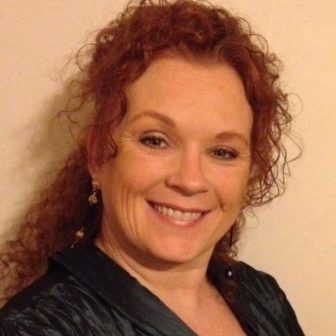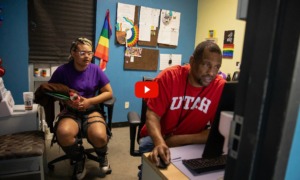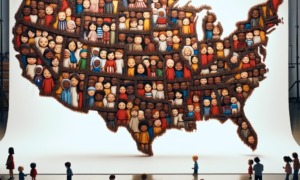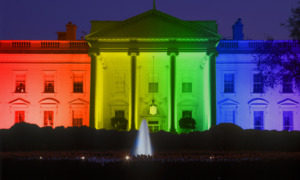 Let me introduce myself, not as Dr. Dorsett, Ph.D., the researcher with professional wisdom to share, but as a former foster kid, a foster care alumni. A girl who spent 16 years in faith-based foster care and lived with 13 different families. A girl who after graduating high school, left the group home in Keller, Texas, in 1982 and never looked back … until recently.
Let me introduce myself, not as Dr. Dorsett, Ph.D., the researcher with professional wisdom to share, but as a former foster kid, a foster care alumni. A girl who spent 16 years in faith-based foster care and lived with 13 different families. A girl who after graduating high school, left the group home in Keller, Texas, in 1982 and never looked back … until recently.
I didn’t understand at the time I aged out of foster care how lucky I was to have an older sibling whose couch I could sleep on for $20 a week while I worked at Kroger and put myself through cosmetology school. I bounced from relationship to relationship looking for love.
By age 32 I started my college education as a homeless single mother with 4- and 2-year-old sons. Before this I experienced two divorces, several relationships and one suicide attempt. I took an overdose when my husband left me when I was 24. I wanted to go to sleep and never wake up to the pain of being left behind and not loved.
But what if I had died that day?
In 2006, as a doctoral candidate researching juveniles, I found out about and joined a national organization called Foster Care Alumni of America (FCAA), an organization of adults whose ages range from 18 to 80. Before discovering FCAA, I had no idea foster care advocacy and foster care alumni family existed.
Who are they and what do they do? FCAA was established with the assistance of Casey Family Programs (CFP) and their national foster care alumni study. FCAA’s beginning slogan was “Connecting Today, Transforming Tomorrow.” So what does that mean? Two things: advocacy and family
The child welfare system is a burdened system trying to do its best to better the lives of thousands of children. That’s where the adult children of the child welfare system come into importance. This is why what we have to say, the way we live and the fact we need to live, matter.
Because you and I can use the experiences of our childhood to advocate for positive change, assist in writing legislation, mentor others from care or simply be the family for those who have none. We are important; we need to live and be successful because we can feel the pain and/or stand in the shoes of others, developing empathy for those fellow alumni from care who need us. We can be a voice for the voiceless.
For a marginalized population such as those in foster care, social media is one of the avenues where alumni find family and stay connected. Not only bio family but foster care family; family from our past and new relationships that can relate and support us where we are. We support one another via messages, pictures and posts.
I have mentored, raised money and networked to assist young adults from foster care via social media. I have gained family and support through social media as well as connecting with bio family and childhood friends. Some of these relationships are supportive and reassuring and some are toxic.
Recently, I have viewed several posts of not only alumni, but youth in foster care who have committed suicide. And I think: What if I had died that evening some 30 years ago? All the accomplishments, all the assistance, all the change and improvement I helped bring to so many lives would not have happened. That is why I am important, why you are important and how living allows you to be a voice.
Research and statistics indicate outcomes of our lives, who we are expected to become in our adult lives after foster care. But research doesn’t discuss the pain of navigating through our lives, taking steps day by day to make it. I have learned that using experiences and telling stories from my childhood has helped me. I have learned what assists me to succeed in life, to navigate through my childhood pain and use it in my adult life to reach out and help my brothers and sisters in and from foster care.
It hasn’t been and will not be a quick fix. It takes time, conversation, faith and counseling to take care of me. To learn how to find the strengths of my childhood experiences and apply them to this adult life after foster care and be who I need to be to help myself succeed and do the best I can to help improve the lives of others. And somewhere in all of that to love myself, love others and develop healthy relationships.
The Ph.D. gave me the title, the experience, the exposure to get to this point today, to be writing this to share with you. The life I have lived in foster care and the 35 years after foster care have given me the lived experience to relate to you, to speak the truth of my experiences and why I matter and why you matter. I will continue to be that voice that actively reaches out of my comfort zone to be who I was meant to be. Our family of foster care alumni needs you to be all you can be.
Dr. Vivian Dorsett is a private practitioner and an assistant professor in criminal justice and sociology at Texas A&M University-Commerce. She is a foster care alumni, national advocate and mentor; sits on several child-welfare affiliated boards, advisory councils, task force and policy councils; and is a single mother of three wonderful sons.




























